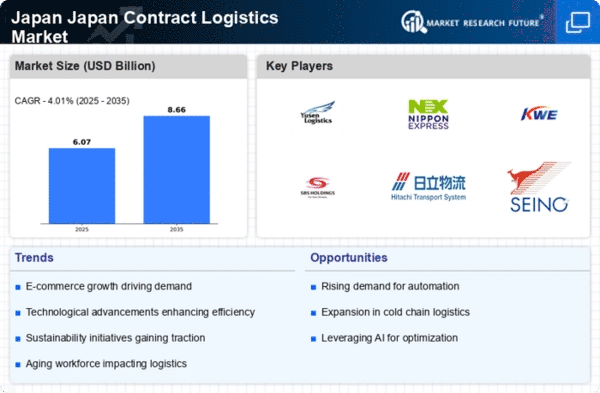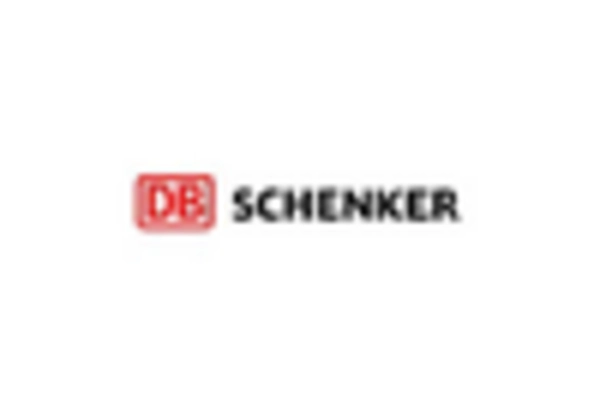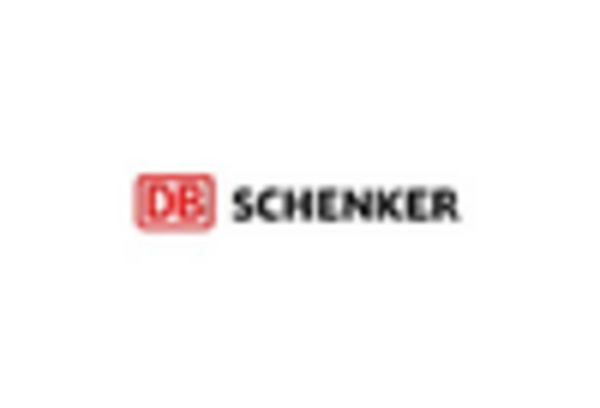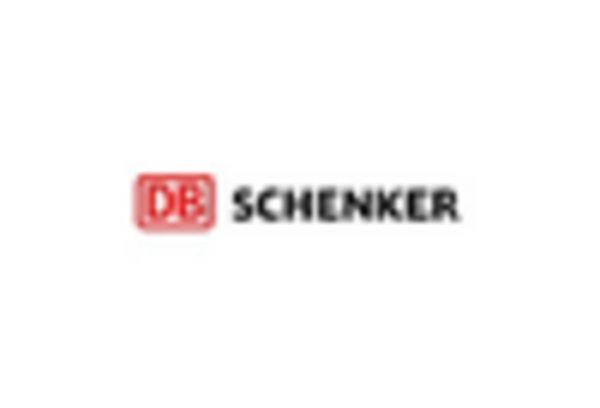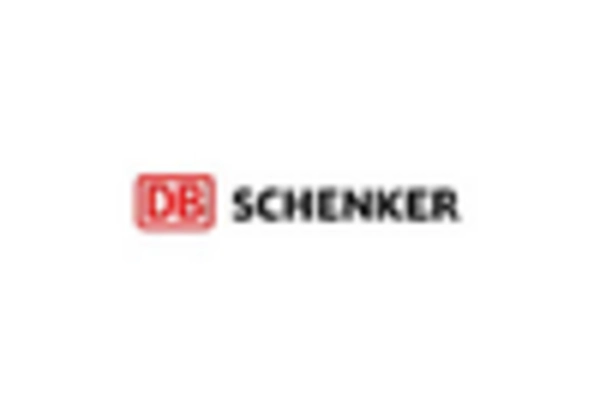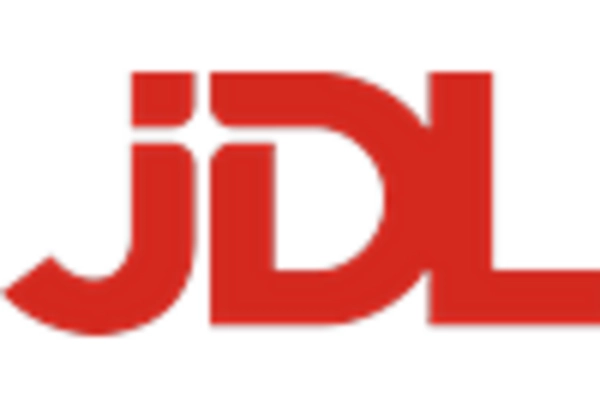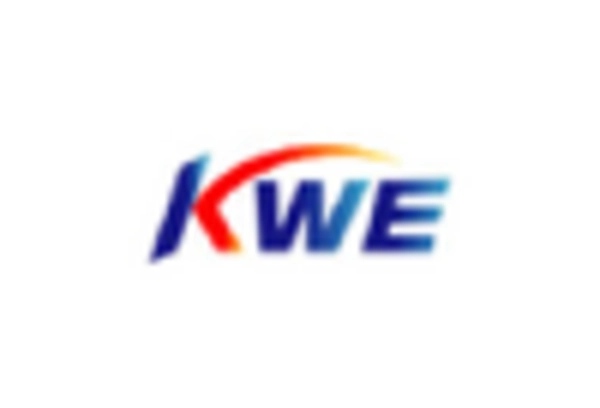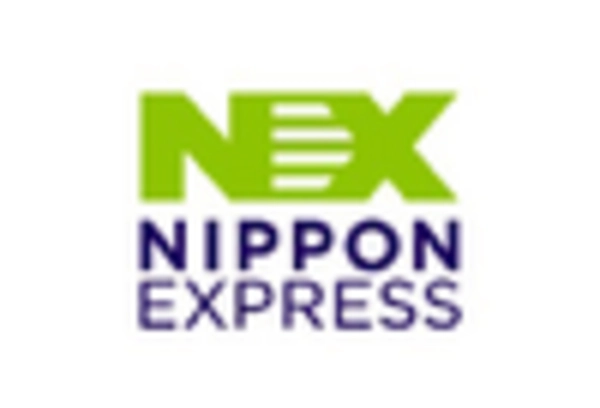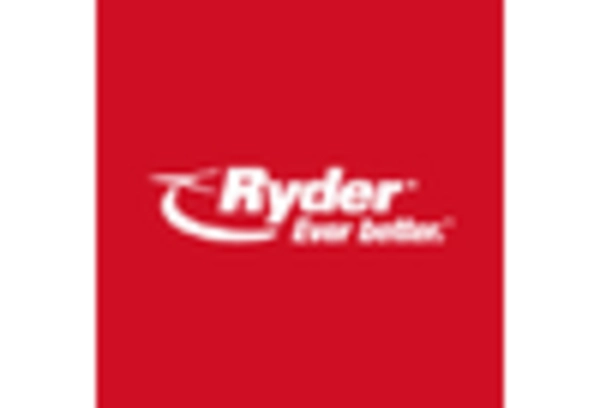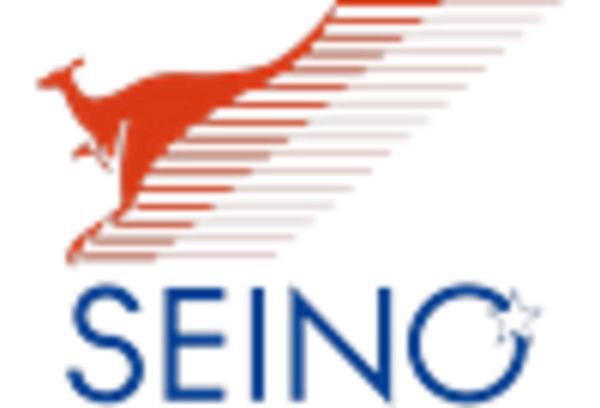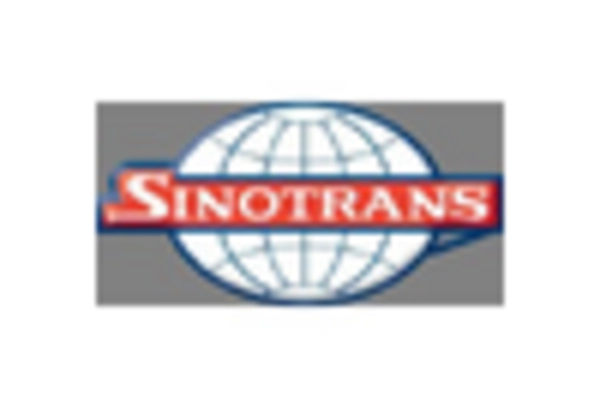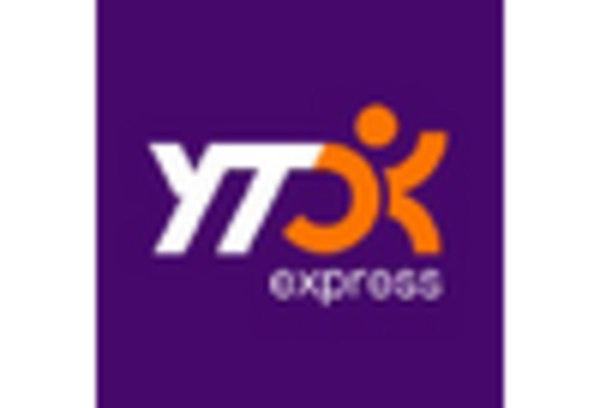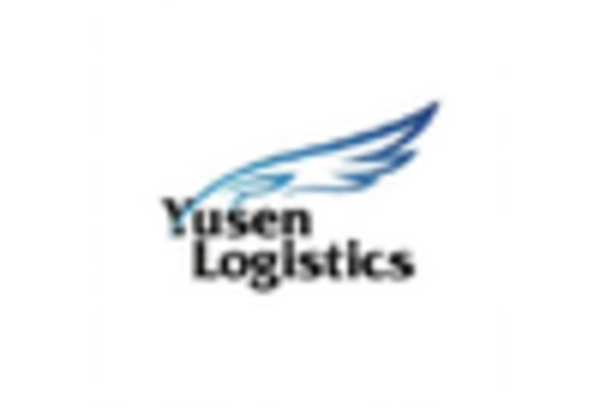The Contract Logistics Market in the US is characterized by a dynamic competitive landscape, driven by factors such as increasing e-commerce demand, the need for supply chain resilience, and advancements in technology. Major players like XPO Logistics (US), C.H. Robinson (US), and DHL Supply Chain (US) are strategically positioned to leverage these trends. XPO Logistics (US) focuses on digital transformation and automation, enhancing operational efficiency and customer service. C.H. Robinson (US) emphasizes its extensive network and data analytics capabilities to optimize supply chain solutions. Meanwhile, DHL Supply Chain (US) is investing in sustainable practices and innovative technologies to meet evolving customer expectations, collectively shaping a competitive environment that prioritizes agility and responsiveness.
The market structure appears moderately fragmented, with a mix of large multinational corporations and regional players. Key business tactics include localizing manufacturing and optimizing supply chains to enhance efficiency and reduce costs. The influence of major players is significant, as they set benchmarks for service quality and operational standards, thereby impacting the overall market dynamics.
In December 2025, XPO Logistics (US) announced a partnership with a leading technology firm to develop AI-driven logistics solutions. This strategic move is likely to enhance their predictive analytics capabilities, allowing for more efficient inventory management and improved customer service. Such innovations may position XPO as a leader in the digital logistics space, potentially attracting new clients seeking advanced solutions.
In November 2025, C.H. Robinson (US) launched a new platform aimed at integrating real-time data analytics into its logistics operations. This initiative is expected to streamline supply chain processes and provide clients with enhanced visibility and control over their shipments. By leveraging data, C.H. Robinson may strengthen its competitive edge, appealing to businesses that prioritize transparency and efficiency in their logistics operations.
In October 2025, DHL Supply Chain (US) unveiled its commitment to achieving carbon neutrality by 2030, which includes investing in electric vehicles and sustainable warehousing solutions. This strategic focus on sustainability not only aligns with global environmental goals but also resonates with a growing segment of consumers and businesses that prioritize eco-friendly practices. Such initiatives could enhance DHL's brand reputation and attract environmentally conscious clients.
As of January 2026, the competitive trends in the Contract Logistics Market are increasingly defined by digitalization, sustainability, and the integration of AI technologies. Strategic alliances among key players are shaping the landscape, fostering innovation and collaboration. The shift from price-based competition to a focus on technology, reliability, and sustainable practices is evident. Companies that can effectively differentiate themselves through innovative solutions and robust supply chain management are likely to thrive in this evolving market.


